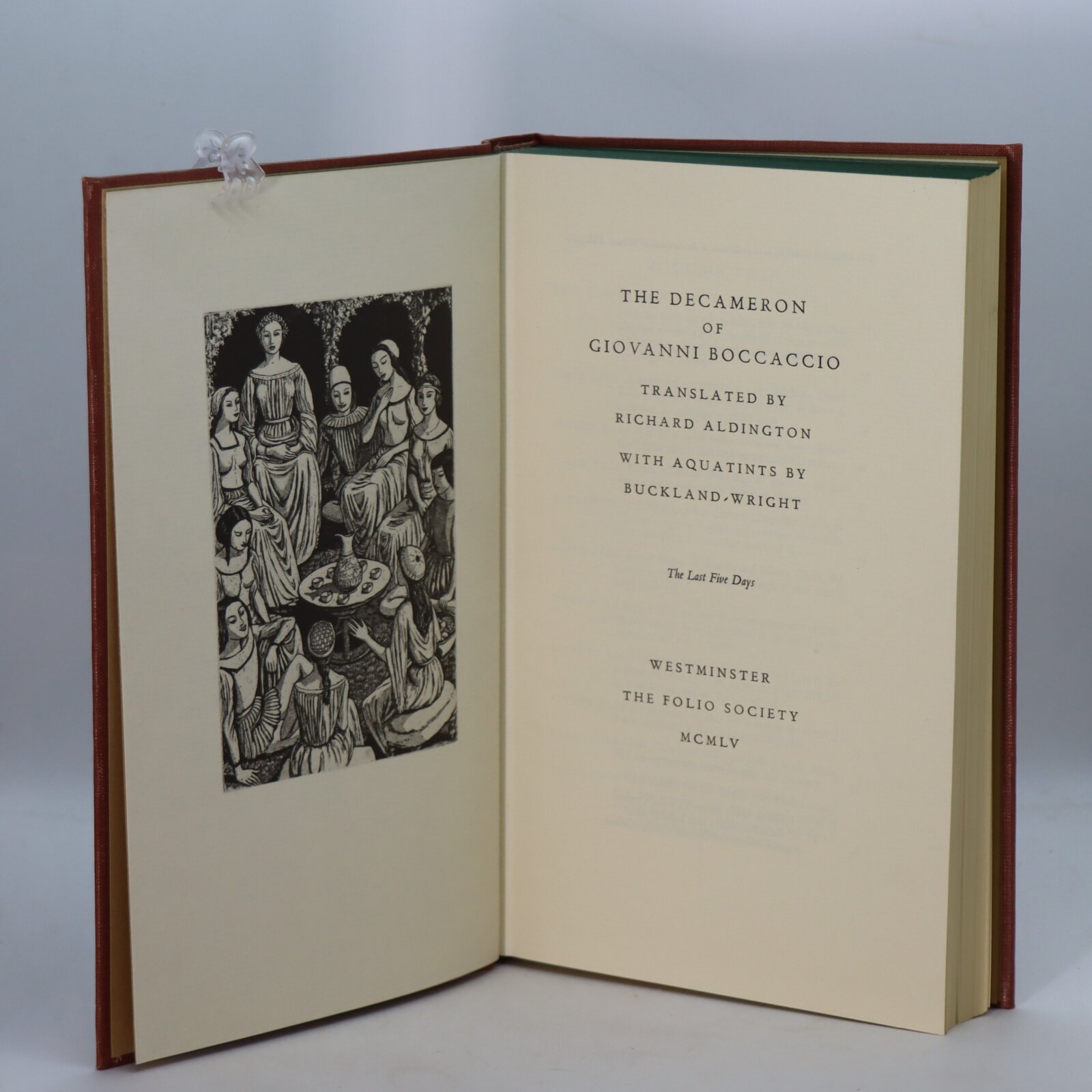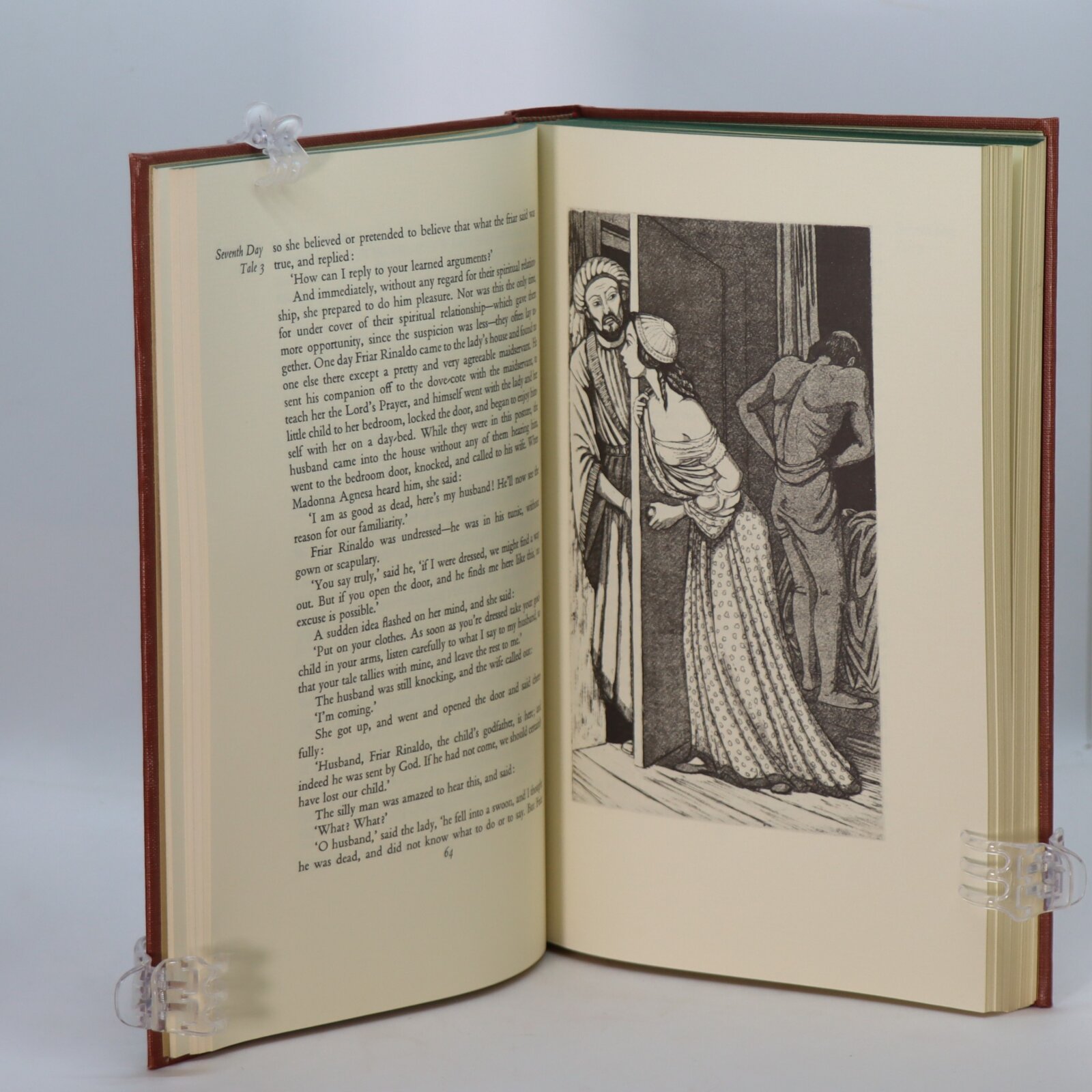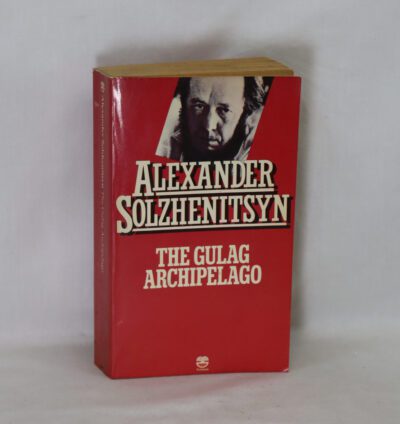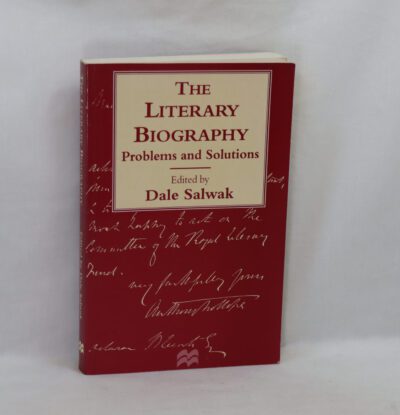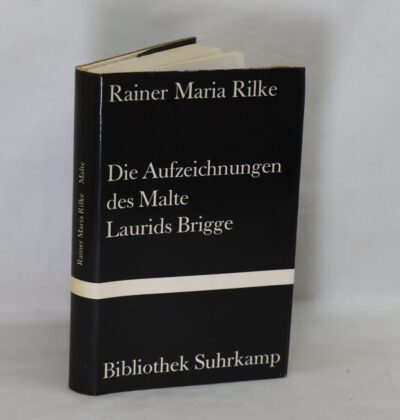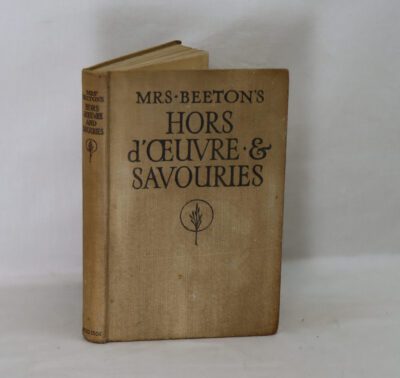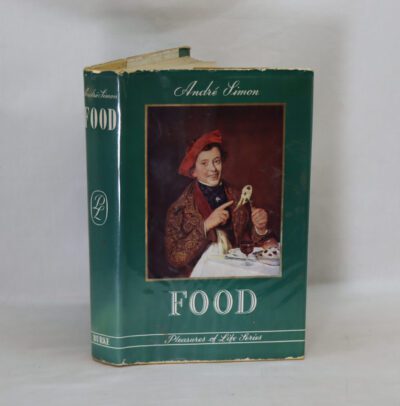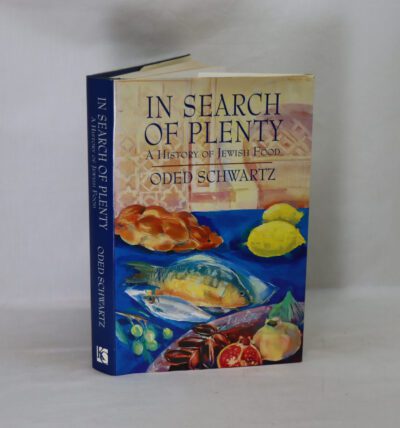The Decameron. Second Five Days.
By Giovanni Boccaccio
Printed: 1969
Publisher: Folio Society. London
Edition: Second edition
| Dimensions | 17 × 27 × 3.5 cm |
|---|---|
| Language |
Language: English
Size (cminches): 17 x 27 x 3.5
Condition: Fine (See explanation of ratings)
Item information
Description
In a fitted box. Tan cloth binding with green and red design on the front board. Gilt title with the same design on the spine.
It is the intent of F.B.A. to provide an in-depth photographic presentation of this book offered so to almost stimulate your feel and touch on the book. If requested, more traditional book descriptions are immediately available.
The Decameron subtitled Prince Galehaut and sometimes nicknamed l’Umana commedia (“the Human comedy”, as it was Boccaccio that dubbed Dante Alighieri’s Comedy “Divine“), is a collection of novellas by the 14th-century Italian author Giovanni Boccaccio (1313–1375). The book is structured as a frame story containing 100 tales told by a group of seven young women and three young men; they shelter in a secluded villa just outside Florence in order to escape the Black Death, which was afflicting the city. Boccaccio probably conceived of the Decameron after the epidemic of 1348 and completed it by 1353. The various tales of love in The Decameron range from the erotic to the tragic. Tales of wit, practical jokes, and life lessons contribute to the mosaic. In addition to its literary value and widespread influence (for example on Chaucer’s Canterbury Tales), it provides a document of life at the time. Written in the vernacular of the Florentine language, it is considered a masterpiece of classical early Italian prose.
Giovanni Boccaccio 16 June 1313 – 21 December 1375 was an Italian writer, poet, correspondent of Petrarch, and an important Renaissance humanist. He was known par excellence as the Certaldese, and one of the most important figures in the European literary panorama of the fourteenth century. Some scholars (including Vittore Branca) define him as the greatest European prose writer of his time, a versatile writer who amalgamated different literary trends and genres, making them converge in original works, thanks to a creative activity exercised under the banner of experimentalism.
His most notable works are The Decameron, a collection of short stories which in the following centuries was a determining element for the Italian literary tradition, especially after Pietro Bembo elevated the Boccaccia style to a model of Italian prose in the sixteenth century, and On Famous Women. He wrote his imaginative literature mostly in Tuscan vernacular, as well as other works in Latin, and is particularly noted for his realistic dialogue which differed from that of his contemporaries, medieval writers who usually followed formulaic models for character and plot. The influence of Boccaccio’s works was not limited to the Italian cultural scene but extended to the rest of Europe, exerting influence on authors such as Geoffrey Chaucer, a key figure in English literature, or later on Miguel de Cervantes, Lope de Vega and the Spanish classical theatre.
Boccaccio, together with Dante Alighieri and Francesco Petrarca, is part of the so-called “Three Crowns” of Italian literature. He is remembered for being one of the precursors of humanism, of which he helped lay the foundations in the city of Florence, in conjunction with the activity of his friend and teacher Petrarch. He was the one who initiated Dante’s criticism and philology: Boccaccio devoted himself to copying codes of the Divine Comedy and was a promoter of Dante’s work and figure.
In the twentieth century, Boccaccio was the subject of critical-philological studies by Vittore Branca and Giuseppe Billanovich, and his Decameron was transposed to the big screen by the director and writer Pier Paolo Pasolini.
A kindly thing it is to have compassion of the afflicted and albeit it well behemoth every one, yet of those is it more particularly required who have erst had need of comfort and have found it in any, amongst whom, if ever any had need thereof or held it dear or took pleasure therein aforetimes, certes, I am one of these.
— Giovanni Boccaccio, Decameron, Proemio
Want to know more about this item?

Share this Page with a friend

